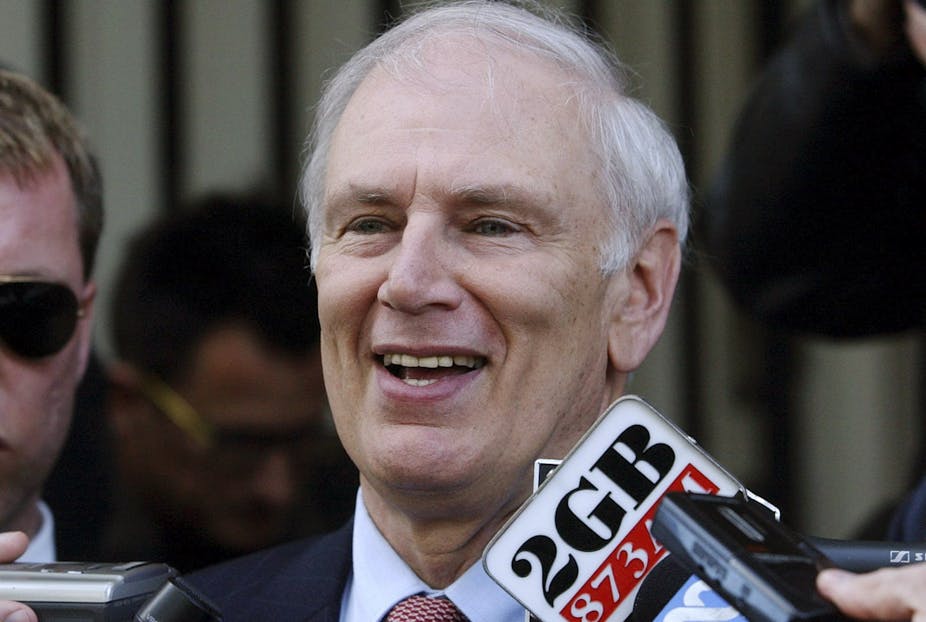Former senior Howard government minister Richard Alston has become the new Liberal federal president, after a vote at the party’s federal council tonight.
Alston, who was anointed by Prime Minister Tony Abbott, defeated John Ruddick, from New South Wales, who appealed to delegates with a call for party reform, saying that the rank and file should choose Liberal candidates for the Senate.
Alston, from Victoria, was communications minister and deputy government leader in the Senate. After leaving parliament he served as high commissioner in London.
During the recent bruising fight over preselection for the Victorian state seat of Kew, he came under criticism for backing candidate Tim Smith against a minister, Mary Wooldridge, who had the support of Premier Denis Napthine but lost the contest.
Supporters of Alston hope that he will be a source of good tactical advice to Abbott. Pitching to council delegates for their vote, Alston said the role of the president was not that “of public commentator or policy advisor”.
Outgoing president Alan Stockdale told the council meeting in Melbourne that the Liberals needed to attract and retain more women as office bearers, candidates and MPs.
He opposed quotas but said the party should improve its efforts to attract women and train them for office, making better use of mentoring.
“This is an important challenge for the party and whilst the women’s committees obviously need to be central in our efforts to attract more women, this should be a key priority for the party as a whole,” he said.
Abbott has come under widespread criticism for having only one woman, deputy Liberal leader Julie Bishop, in his cabinet, and only a handful on his frontbench.
Stockdale also told the council that the party should employ an experienced fundraiser as deputy director, heading a professionally staffed fundraising unit. The unit should be used to coordinate, but not control, fundraising on a party-wide basis.
He predicted that fundraising would attract “more and more” regulation and would become more difficult.
“As a result, I believe that we have no choice but to place increased reliance on raising a large volume of smaller donations, as happens in many other Western democracies.”
Stockdale called for more reform to allow people who joined the party to have greater involvement.
He said reforms in Victoria had opened virtually all of the party’s major organs to direct participation by “grassroots” members rather than just delegates. Those reforms led to growing membership and participation.
“We need to extend the opportunities for members to be actively and personally involved in all our activities - if they so choose - if we are to grow membership and further invigorate our party,” Stockdale said. Reform needed to go “far beyond” introducing plebiscites, important as that was.
Increased membership needed to be a major focus, with the party aiming to raise more funds via members.
In sentiments echoing the push in Labor to get more members, Stockdale said the party should make it easier to join and “more difficult for vested interests to exclude applicants”.
The party should look at methods used in countries such as Canada and Britain and advertise for members in publications of like-minded organisations.
“I believe we should consider opening the federal organisation to corporate membership across the country,” he said.
Leading moderate Tom Harley, from Victoria, held his position as a vice-president, despite moves by some in the party to push him out.

